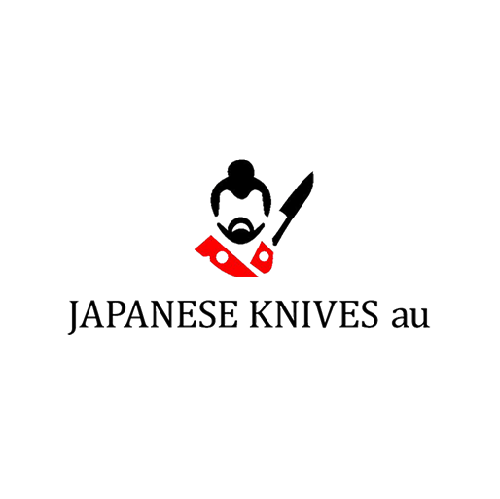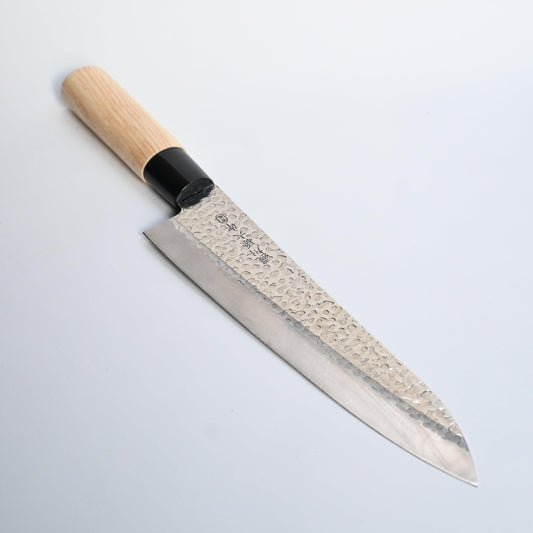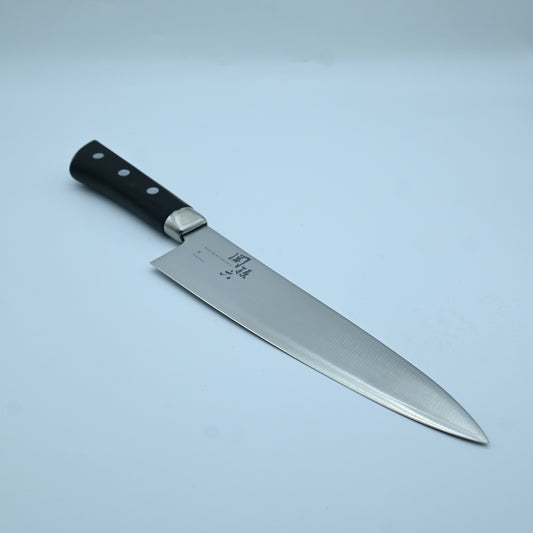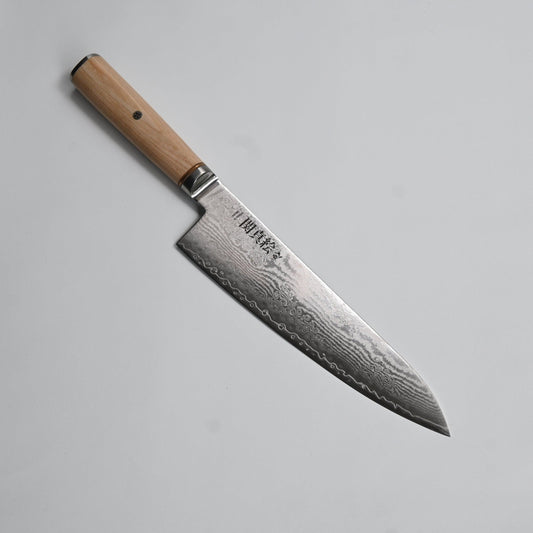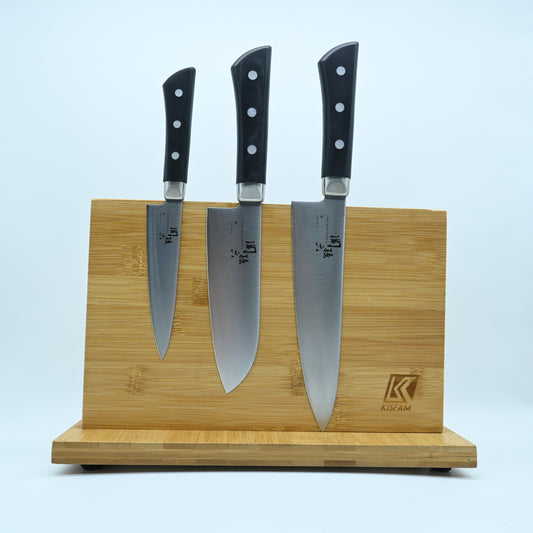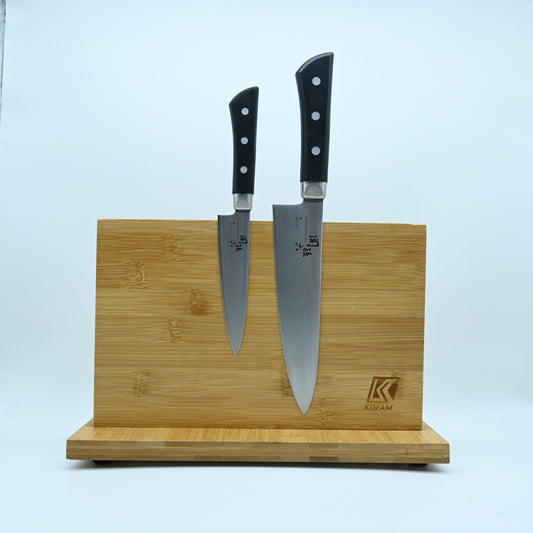Why Should I Buy a Japanese Knife?
Why Should I Buy a Japanese Knife?
By Gonzalo Reyes
If you're into cooking a(or even just want to make meal prep easier), you've probably heard of Japanese knives. But what makes them so special? And are they really worth the price?
In this post, I’ll explain why you should consider adding a Japanese knife to your kitchen, how it can improve your cooking, and what to look for when choosing the right one.
What Makes Japanese Knives So Good?
1. Sharpness That Lasts
Japanese kitchen knives are known for their razor-sharp edges. They're usually made from high-carbon or powdered steel, which holds its edge longer than many Western knives. This means less sharpening and cleaner, easier cuts. As a chef, in my early years of learning my dad bought me some “tres claveles” knives (Spanish knives), at the very beginning I felt like they where the best in the word, but I got tired of sharp every week, so I decided to buy a Japanese knife because all the other chef where telling me they are worth it. So I saved money (to be exactly, were $119.000 clp, around $200 Aud) that it took me 3 months of savings in Chile ( back in 2020) and I bought my first Japanese knife. The first thing that I noticed was how sharp it was, and with the use, the edge retention was is still good. It took me around 2 months to sharp for the very first time, I was amaze. From that day, I only use Japanese knives when I cook.

2. High-Quality Materials
The steel used in Japanese knives is super tough but also fine-grained. That combo lets the blade stay sharper and resist chipping when used properly. Some are even layered like Damascus steel, which adds beauty and strength.
3. Lightweight and Balanced
Compared to German or Western knives, Japanese knives are thinner and lighter. This makes them easier to handle, especially when you're doing precision cutting or working for long periods.
4. Handcrafted Excellence
Many Japanese knives are handmade by skilled artisans using traditional forging techniques. Some take weeks to make and are created in small batches, often by a master and a few apprentices.
5. Beautiful and Functional Design
A lot of Japanese knives look like pieces of art. From the shape of the blade to the style of the handle, they’re made with care and often come with unique patterns and materials.
What Types of Japanese Knives Are There?
There’s a Japanese knife for pretty much every kitchen task. Here are the most popular ones:
This is like the Japanese version of a Western chef's knife. It's versatile and great for slicing, dicing, and chopping.
"Santoku" means "three virtues"—cutting, slicing, and dicing. It’s a great all-rounder, especially for home cooks.
Made for vegetables, the flat edge lets you cut straight through without rocking.
Perfect for slicing raw fish and sushi with clean, long strokes.
A small utility knife that’s great for peeling, trimming, and detail work.
Why Are Japanese Knives Expensive?
Japanese knives can be pricey, but here’s why:
- Premium materials: High-end steel, handcrafted handles, and Damascus patterns all cost more to produce.
- Time-consuming craftsmanship: It can take 2–5 weeks to make one knife by hand.
- Long lifespan: With proper care, a Japanese knife can last a lifetime.
So while they’re not cheap, they are a long-term investment in your kitchen.
How to Choose the Right Japanese Knife
Here are a few tips:
1. Think About What You Cook
If you cook a lot of veggies, go for a Nakiri. Want an all-rounder? Choose a Gyuto or Santoku.
2. Set a Budget
You don’t have to spend $1,000. There are great knives at every price point.
3. Check the Fit and Feel
Make sure the handle feels comfortable and the knife feels balanced.
4. Know the Maintenance
Japanese knives stay sharp longer but need a bit more care. Hand wash, dry immediately, and store safely.
FAQ: Why Should I Buy a Japanese Knife?
Is a Japanese knife better than a Western knife?
Japanese knives are generally sharper, lighter, and more precise. Western knives are heavier and more durable for rough tasks. It depends on your style and needs.
Are Japanese knives good for home cooks?
Absolutely! Many Japanese knives are made for everyday use. They’re especially good if you want a better cutting experience.
How long do Japanese knives last?
With proper care, a good Japanese knife can last decades—sometimes even a lifetime.
Where should I buy a Japanese knife in Australia?
Japanese Knives AU is a great place to start. They have a wide selection of authentic Japanese kitchen knives, from entry-level to premium handmade blades. They also offer fast shipping, helpful customer service, and tons of product info to help you choose.
What’s the best Japanese knife for beginners?
A Santoku or Gyuto knife is perfect to start with. They’re both super versatile and easy to use.
Final Thoughts
Buying a Japanese knife is more than just getting a sharp blade—it's investing in better performance, beautiful design, and centuries of craftsmanship. Whether you’re a weekend cook or a kitchen pro, the right Japanese knife can completely change how you prep food.
Check out the selection at Japanese Knives AU and find the blade that fits your cooking style.
Happy chopping!
Keywords used naturally in this post: Japanese knife, Japanese kitchen knife, Japanese knives, Gyuto knife, Santoku knife, Nakiri knife, best Japanese knife for beginners, where to buy Japanese knives in Australia, handcrafted Japanese knives, premium Japanese knives.
External links use as a reference:
https://www.seriouseats.com/western-versus-japanese-style-chefs-knives-6751328
